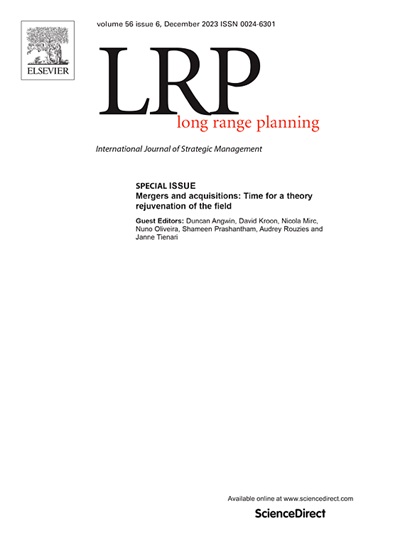Resource redeployment in corporate acquisitions: Going beyond horizontal acquisitions
Abstract
Resource redeployment between merging firms is an important way in which corporate acquisitions create value. Such redeployment can occur in horizontal deals when the acquirer and the target are from the same industry, or in non-horizontal deals when the acquirer and the target come from different industries. Although existing research focuses on the former scenario of resource deployment in horizontal acquisitions, resource deployment as a potential source of value in non-horizontal acquisitions has been understudied. This study uses a formal model to develop a theory of resource redeployment that both embraces and contrasts both types of acquisitions to offer new insights. The study concludes that the focus on horizontal acquisitions misses M&A contexts in which resource redeployment can create the highest value. Results from the model also demonstrate that acquisition performance has an inverse U-shaped relationship with relatedness between the merging firms. Finally, the effect of relatedness critically depends on the asymmetry in returns between the merging firms. These results are important for future empirical studies of acquisition performance and of target selection and are instructive to corporate managers seeking targets and managing potential redeployment of resources across organizations via M&A.

 求助内容:
求助内容: 应助结果提醒方式:
应助结果提醒方式:


